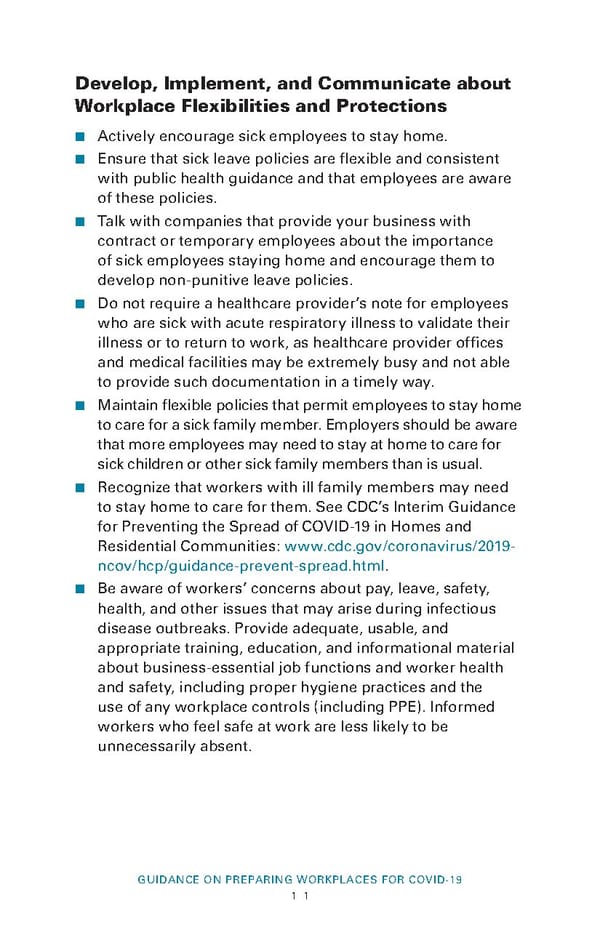Develop, Implement, and Communicate about Workplace Flexibilities and Protections ■ Actively encourage sick employees to stay home. ■ Ensure that sick leave policies are flexible and consistent with public health guidance and that employees are aware of these policies. ■ Talk with companies that provide your business with contract or temporary employees about the importance of sick employees staying home and encourage them to develop non-punitive leave policies. ■ Do not require a healthcare provider’s note for employees who are sick with acute respiratory illness to validate their illness or to return to work, as healthcare provider offices and medical facilities may be extremely busy and not able to provide such documentation in a timely way. ■ Maintain flexible policies that permit employees to stay home to care for a sick family member. Employers should be aware that more employees may need to stay at home to care for sick children or other sick family members than is usual. ■ Recognize that workers with ill family members may need to stay home to care for them. See CDC’s Interim Guidance for Preventing the Spread of COVID-19 in Homes and Residential Communities: www.cdc.gov/coronavirus/2019- ncov/hcp/guidance-prevent-spread.html. ■ Be aware of workers’ concerns about pay, leave, safety, health, and other issues that may arise during infectious disease outbreaks. Provide adequate, usable, and appropriate training, education, and informational material about business-essential job functions and worker health and safety, including proper hygiene practices and the use of any workplace controls (including PPE). Informed workers who feel safe at work are less likely to be unnecessarily absent. GUIDANCE ON PREPARING WORKPLACES FOR COVID-19 11
 Guidance on Preparing Workplaces for COVID-19
Page 12 Page 14
Guidance on Preparing Workplaces for COVID-19
Page 12 Page 14